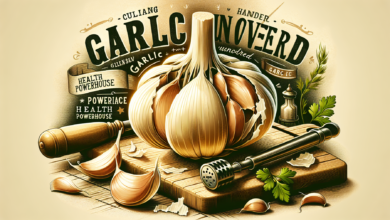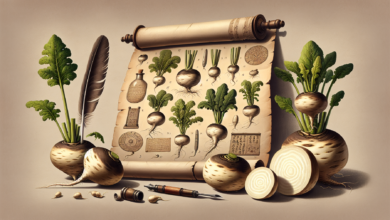Vibrant Roots: Unlocking the Health Benefits and Culinary Versatility of Beets

Introduction
Ah, the beet! This vibrant, earthy root vegetable, often overlooked, is a true powerhouse of nutrition and flavor, bursting forth with a palette that ranges from deep crimson to golden yellow. Growing in popularity across the United States, beets are now gracing farmers’ markets and grocery stores alike, all year round. As we navigate the ever-evolving landscape of health, it’s crucial to embrace the nutritional benefits that these vibrant roots offer. Beets are not just a garnish; they are a means to embrace a healthier lifestyle.
Description
Boasting a rich history that dates back to ancient civilizations, beets originally hailing from the coastal regions of the Mediterranean, have transcended their humble beginnings to become a staple in modern kitchens. With varieties such as the classic red beet, golden beet, and the striking Chioggia beet—a stunning kaleidoscope of stripes—their aesthetic appeal mirrors their myriad of flavors. Sweet yet earthy, they create a symphony on the palate that can range from robust to subtly sweet, depending on preparation.
In the United States, beet cultivation thrives in the cooler months, particularly in states like Michigan and California, where these vibrant roots are harvested from late summer through early spring. Fun fact: beets have long been associated with health and vitality—think of those ancient Romans, who valued them for their medicinal qualities!
Health Benefits
When it comes to nutrition, beets are nothing short of a tour de force. Rich in essential nutrients, they are loaded with vitamins A, C, and K, folate, manganese, and potassium. And did I mention their impressive antioxidant content? Betacyanin, the pigment that gives beets their dynamic color, not only beautifies our plates but also fights inflammation and cell damage.
Scientific studies have shown that consuming beets may contribute to lower blood pressure, enhanced athletic performance, and improved digestion due to their high fiber content. According to nutrition experts, these delightful roots can also aid in weight loss, thanks to their low-calorie count paired with high-density nutrients—a paradox we can all appreciate!
How to Use
Incorporating beets into your meals can be as creative as it is delicious. They can be shredded raw into salads, roasted to caramelized perfection, or pureed into vibrant soups. The earthiness of beets pairs exquisitely with feta cheese, citrus fruits, and nuts, creating a well-rounded flavor profile that tantalizes the taste buds.
For optimal nutritional benefits, consider steaming or roasting your beets, as opposed to boiling, which may lead to nutrient loss. Don’t shy away from the beet greens either—these leafy tops are edible and packed with nutrients themselves!
Recipes
Simple Beet Salad
Ingredients:
- 2 medium beets, roasted and diced
- 1 cup arugula
- ½ cup crumbled feta cheese
- ¼ cup walnuts, toasted
- Juice of 1 lemon
- Olive oil, salt, and pepper to taste
Instructions:
- Roast the beets until tender, then cool and dice.
- In a bowl, combine arugula, roasted beets, feta, and walnuts.
- Drizzle with lemon juice and olive oil, season with salt and pepper, and toss gently.
Quick and Easy Recipes
Craving more beetlicious ideas? Try beet hummus for a stunning dip, or blend them into smoothies for a health boost!
Tips for Buying & Storing
When on the hunt for the freshest beets, look for roots that are firm and smooth, avoiding those with soft spots or blemishes. The vibrant greens still attached should be crisp and lively, indicating freshness.
To prolong their life, store beets in the refrigerator—ideal for up to two weeks. If you want to take it a step further, consider blanching and freezing your beets, preserving their nutrients for later enjoyment.
Precautions & Considerations
While beets are generally safe for most individuals, some may experience beeturia—a condition where urine turns pink or red post-consumption, which is harmless but can be surprising! Additionally, their high oxalate content could pose risks for those with a history of kidney stones. Moderation is key, especially for those with specific dietary restrictions.
Conclusion
In the grand symphony of vegetables, beets take center stage, commanding attention with their vibrant hue and rich health benefits. From heart health to weight loss, these roots are more than just a salad staple—they are a versatile addition to your diet that can transform your meals and health.
So go ahead, make beets a part of your culinary repertoire. Add this vegetable to your next grocery list and start reaping the health benefits! Your body (and taste buds) will thank you.




